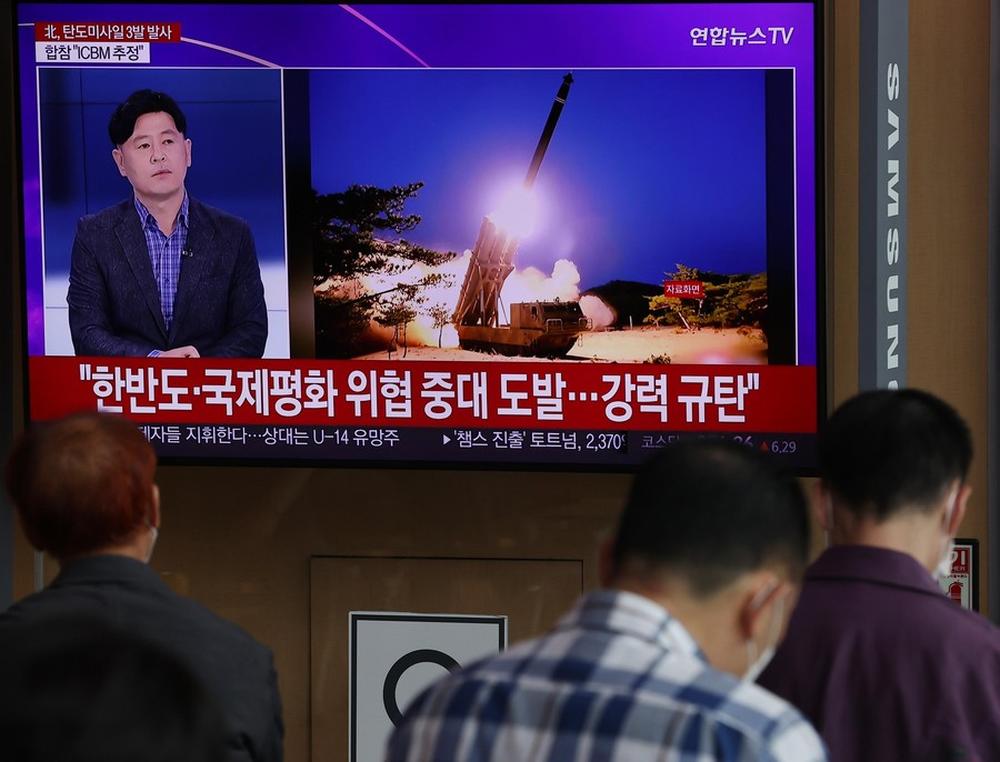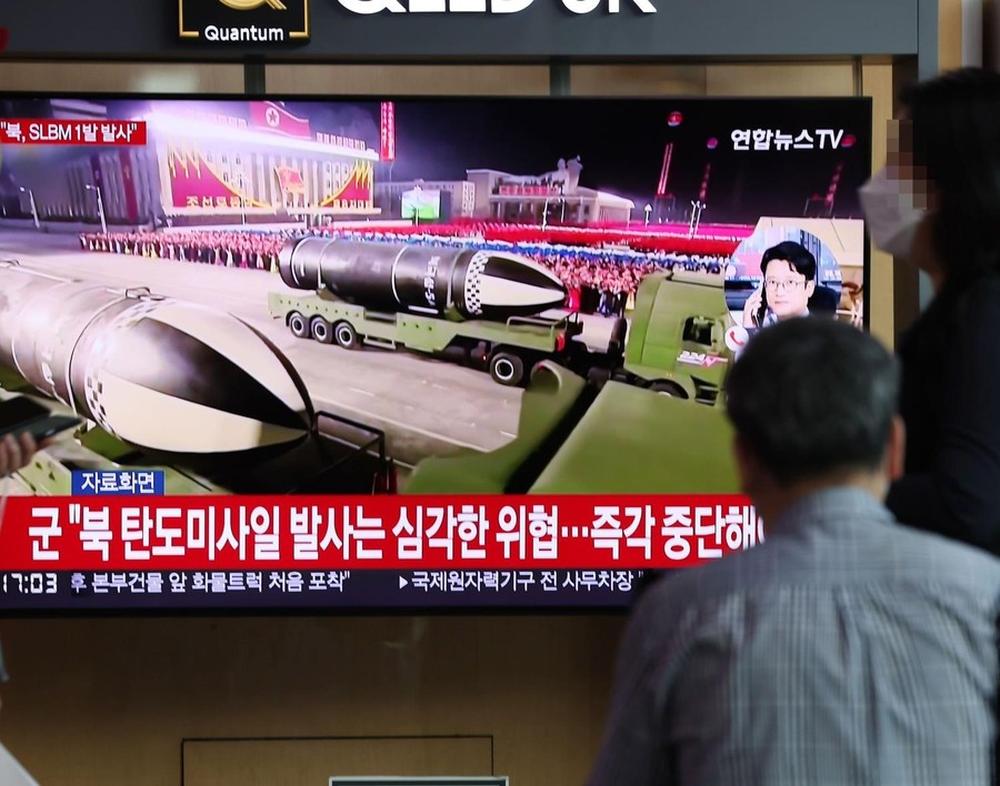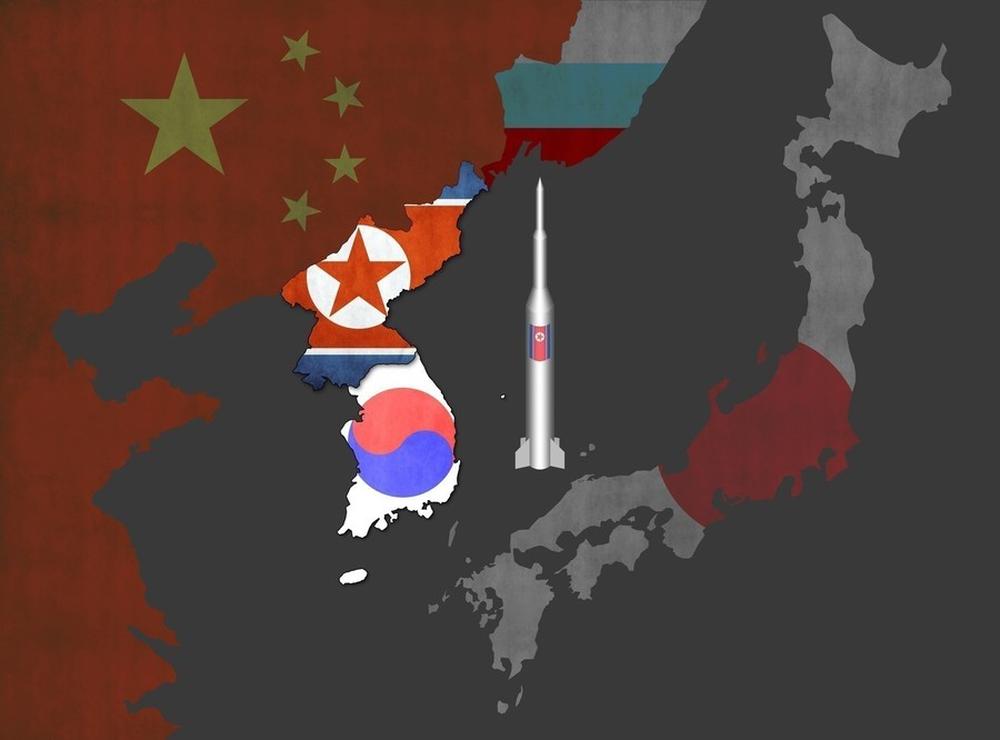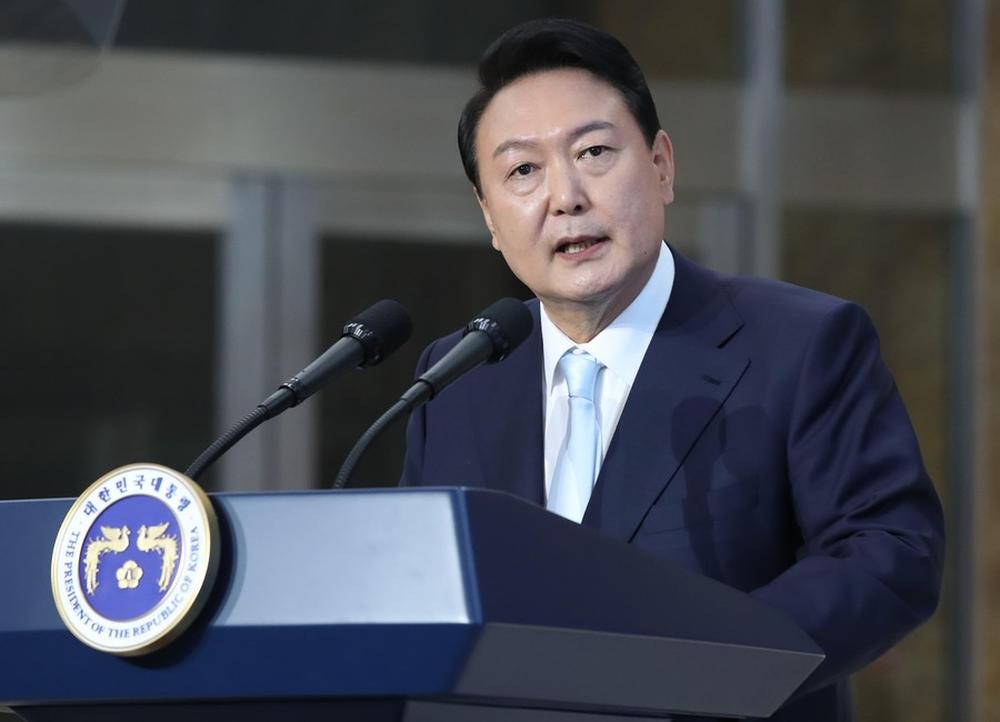- #Inter-Korean Relations
- #North Korea
- #Nuclear & Missile Issues
- #US Foreign Policy

► Rather than abiding by the engagement policy of previous administrations, the incoming Yoon Suk Yeol administration must devise a policy that reflects both the unprecedented changes in international order and the “relationship of power” between the two Koreas.
► In dealing with the South, North Korea established a new policy to achieve national unification through nuclear weapons.
► It is critical that the two Koreas maintain their channel of communication.
The broader framework of inter-Korean relations is very much determined by the international security architecture. Moreover, the power disparity between the two Koreas dictates the nature of their relationship. The two countries’ domestic politics and inter-Korean relations also mutually influence one other.
The international security architecture is now in a major transitional period. Korea’s familiar policy of engagement is the product of the post-Cold War period. Without a clear adversary in the post-Cold War period, the United States ushered in a period of unprecedented globalization, during which Korea became an active participant. Korea then implemented its northern policy, normalizing relations with China and the Soviet Union, and extending its engagement policy towards North Korea. Much of Korea’s momentum to implement an engagement policy towards the North was provided by its military superiority.
In 1991, the Roh Tae-woo administration signed the Agreement on Reconciliation, Nonaggression, and Exchanges and Cooperation between the South and the North, and in 2000, the Kim Dae-jung administration held an inter-Korean summit, followed by the South-North Joint Declaration. Over a number of years, Korea provided over 2.8 million tons of food and 2.5 tons of fertilizers to solve North Korea’s food shortage and arranged for more than 20,000 people to meet their long-lost families. The two Koreas also engaged in economic cooperation projects such as building inter-Korean railroads, establishing the Kaesong Industrial Complex, and beginning the Mt. Gumgang tours. During these exchanges, a great deal of people-to-people contact and exchanges of goods took place. At the center of Korea’s engagement policy was an effort to utilize economic assistance to push inter-Korean relations towards openness and change.
Throughout the post-Cold War period, unfortunately, North Korea has responded by investing in its nuclear weapons program. It has now become a successful nuclear country. In response, the United Nations Security Council has blocked all sources of North Korea’s foreign currency. Internationally, the US-China strategic competition has become more intense than ever before, which is forcing a divide within the international community. Globalization has taken a step back and the global supply chains are now being restructured. The start of a new Cold War seems inevitable in the immediate aftermath of Russia’s invasion of Ukraine. Given the current security climate, engagement policy towards North Korea does not appear feasible. This was the reason why the Moon Jae-in administration’s “Korean Peninsula Peace Process” did not not succeed.
Rather than abiding by the engagement policy of previous administrations, the incoming Yoon Suk Yeol administration must devise a policy that reflects both the unprecedented changes in international order and the “relationship of power” between the two Koreas. The Yoon administration will face its greatest challenge in the form of North Korea’s nuclear threat. The February 2019 US-DPRK summit in Hanoi broke down when North Korea refused denuclearization and opted for nuclear arms reduction. Following the breakdown of the Hanoi summit, North Korea came to the realization that lifting UNSC sanctions will be difficult, declaring its determination to resolve its economic woes by focusing on self-reliance rather external relations/cooperation. Self-reliance symbolizes North Korea’s unwilling to give up its nuclear weapons.
In dealing with the South, North Korea established a new policy to achieve national unification through nuclear weapons. The 8th Party Congress in January 2021 served as an occasion for North Korea to expedite national unification by eliminating military threats and using its strong military to secure durable peace and stability on the Korean Peninsula. North Korea’s ability to prevent the U.S. from intervening in a potential war on the Korean Peninsula and to remove the presence of U.S. Forces Korea remain at the core of North Korea’s vision of national unification. It has explicitly declared that its development of nuclear and ICBM capabilities is for this exact reason. This is a much more confrontational approach than its past approach, which aimed to achieve unification by causing revolutions within Korea. On April 25, 2022, Kim Jong-un said that its nuclear weapons are not only for deterrence purposes but for pre-emptive use in case its national interests are threatened. Given North Korea’s current situation and the effort it has put in to developing nuclear weapons, simply possessing such weapons may not make sense, at least from the North Korean perspective. North Korea will use its nuclear weapons for political, economic, military, and psychological purposes to dictate the security environment on and around the Korean Peninsula.
How will the incoming Yoon administration cope with the shift in international security order and North Korea’s growing nuclear threat? The number one priority should be to establish a firm national policy agenda that corresponds with the changing trends in global civilization. Korea must strive for a free, open, and advanced civilization. President Yoon has already expressed his desire to establish a republic that is based on democracy and market economy. To achieve this end, he said that he will respect the power of science and truth, and look to achieve national growth through science, technology, and innovation, adding that such growth will lead to greater freedom. He also declared that Korea will work with the free world in order to secure freedom, human rights, and peace, and strengthen collaboration with advanced countries that have already achieved breakthroughs in science, technology, and innovation. These statements show his fundamental approach to foreign relations.
The next on the agenda for the Yoon administration is to secure and to protect the lives, freedom, and wealth of the Korean people, especially in the midst of the turbulent international order and North Korea’s growing nuclear threat. Korea has been unsuccessful in its attempt to lead the Korean Peninsula towards peace and denuclearization. On the other hand, North Korea has made tremendous strides in terms of its nuclear/missile capabilities. As such, Korea must possess practical and formidable deterrence capabilities that can help Korea become more resistant to North Korea’s nuclear threat. It must also secure self-reliant military capabilities in order to achieve military balance and stability vis-à-vis North Korea and, at the same time, strengthen the ROK-US alliance system including extended deterrence. Based on its nuclear weapons capabilities, the North may engage in local provocations, believing that the South is no match for its military. Korea must have appropriate military preparedness to firmly deal with such provocations and, thereby, prevent North Korea from making miscalculations and make sure the Korean public is not intimidated psychologically by North Korea’s nuclear threat. At this point, a North Korea policy based on the concept of “peace through power” makes sense.
At the same time, Korea must continue work towards denuclearization through diplomacy. Without North Korea’s denuclearization, instability on the Korean Peninsula will persist and further complicate inter-Korean peace initiatives and economic cooperation. Therefore, Korea must engage in diplomatic talks that are principled and consistent with the goal to achieve sustainable peace and security on the Korean Peninsula via North Korea’s complete and verifiable denuclearization. International sanctions must be maintained until North Korea’s complete denuclearization but economic aid—based on reciprocity—could be provided if the North makes the decision to denuclearize and makes practical steps towards achieving such a goal. If North Korea does denuclearize, the two Koreas will then be able to work towards coprosperity by engaging in joint inter-Korean economic development plans and modernizing the North Korean economy. In such a scenario, Korea’s economy and private capital, along with the international financial system, could propel North Korea towards rapid economic development. Moreover, North Korea’s denuclearization will allow the two Koreas to dictate peace on their own peninsula.
Ultimately, Korea strives for unification of the Korean Peninsula. This goal is based on the fact that the two Koreas were, at one point, one country and that their people share the same ethnicity. In order for unification to take place, the two Koreas must maintain the same ethnic identity. To do this, the two Koreas must transform the current relationship from confrontation and separation to mutual openness, communication, and exchanges. The two must also prevent a process of heterogeneity in terms of language by opening up their press, publications, and media broadcasts. Even prior to denuclearization, expanding people-to-people exchanges, and providing emergency humanitarian relief, nutritional aid for North Korean infants and pregnant women, health and medical aid will go a long way to addressing humanitarian issues. Other humanitarian issues caused by national division, such as separated families, prisoners of war, and kidnapped families must also be resolved by the two Koreas. The Korean government could start by protecting North Korean defectors and making sure they settle in the South.
It is critical that the two Koreas maintain their channel of communication. They must open the door for dialogue so that the two can reduce tensions through dialogue and work towards common interests. In that sense, inter-Korean dialogue, in and of itself, can be meaningful.



